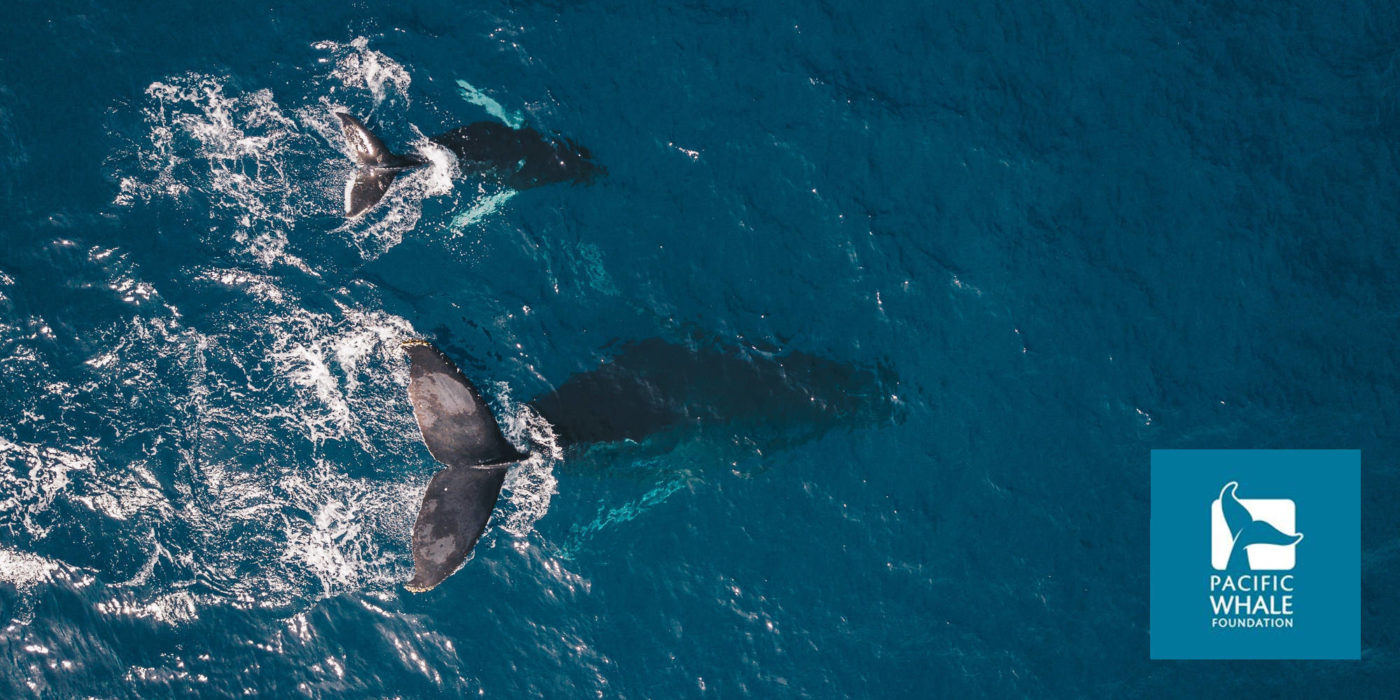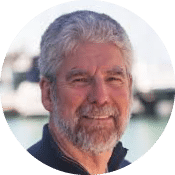A research grant for whale-spotting on a Hawaiian island launched positive change for cetaceans around the world. In 1980 Greg Kaufman started Pacific Whale Foundation on the island of Maui in Hawai’i. Its first Research Director was Kaufman’s fellow whale-spotter Dr. Paul Forestell, who is now chair of PWF’s Board of Directors. Parvati Magazine caught up with Forestell to learn more.
PMAG: How did the love for whales begin?
PF: I must admit that my original reason for going to Hawaii was to get out of the New Brunswick winters! I went for a doctoral program that was measuring the communication intelligence of dolphins. We had them in a captive facility and I found out dolphins are amazing. The second year funding to look at the potential impact of tourism on endangered humpback whales was my first introduction to marine mammals in the wild. It was mindblowing. After spending a couple of winters swimming with humpback whales and dolphins, the lab didn’t seem as important as working with them in their own environment.
PMAG: What made the two of you think you could make a difference?
PF: It began when we realized the average person had no awareness of what a whale or dolphin is. Everything that was known about whales and dolphins in the mid-70s was based on what biologists learned by cutting up specimens on the deck of ships. We understood that people would be interested in getting up close and personal to whales and dolphins. We saw that we could have a positive impact by giving accurate information to participants based on our research. Greg also saw the potential to work with people to make them responsible tour operators.
PMAG: Since then you have developed international guidelines that others can use to have viable whale watching operations.
PF: We have been involved in the initial development of whale and dolphin watching in a few areas. In Japan individuals who were fishermen and whale hunters saw an easier opportunity running whale watching instead. [It also happened] in Australia, Ecuador, Costa Rica.
It can be complicated in developing countries, because often people are transitioning from subsistence fishing. It comes down to four things that we really work with people to practice in their unique environments:
1. Give whales and dolphins their space; allow them to decide what the encounter will be.
2. Practice what you preach. If you see debris out there, stop and pick it up. Use good practices on the boat. Model what you want people to do.
3. Ensure relevance and accuracy in the information you’re giving the passengers.
4. The last one is very important: Develop whale and dolphin watching by minimizing the negative impact on your community. We’ve seen a number of locations where small communities take advantage of marine mammals nearby and all of a sudden they are flooded with tourists whose behavior and quantity can affect the social dynamic of the community. It’s important to collaborate with each other, with social justice and conservation folks.
PMAG: What are you most proud of about the whole Pacific Whale trajectory?
PF: I’m proud that 35 years later PWF remains absolutely committed to empowering people to understand how they impact the ocean and its inhabitants, and how we can all do it better.
PMAG: What whale or dolphin experience had a big impact on your life?
PF: In Australia there was a young adult humpback that was stranded on a sandbank off an island in a remote area. An aquarium from the Gold Coast contacted me and I met them there. We took care of the whale for about a day while we gathered equipment to put a harness around its pec fins and when the tide came in we successfully broke the vacuum between the whale’s belly and the sand by pulling it with a large boat. Over the years we’ve continued to see it, so we know it survived.
I will never forget tending to that whale on the sandbank. Seeing a stranded whale after seeing them in the ocean, and realizing how truly vulnerable such a huge animal can be, created images and emotions I still feel. I treasure the sense of closeness I had that day.
PMAG: Do you feel connected to the whales in a non-scientific way?
PF: When I’m with them there’s a sense of spirit and amazement and immensity that [gives rise to] spiritual questions. I’m not sure the whales sense humans in the same way. But they do show curiosity which leads to some beautiful, beautiful interactions. There’s always excitement when I see whales, that I never take for granted. I learn and see something new each time. It’s a phenomenal opportunity to grow awareness and that is a big motivator for Pacific Whale Foundation.
Together with Pacific Whale Foundation founder Greg Kaufman, Dr. Paul Forestell is a world-renowned humpback whale researcher, educator about marine life and ecotourism expert. Pacific Whale Foundation has had a pivotal effect on the global perception of cetaceans through Kaufman and Forestell’s books, serving on regulatory boards and taking more than 3.5 million people from around the world to learn about ocean wildlife and marine conservation through their tours. For more information go to www.pacificwhale.org.












